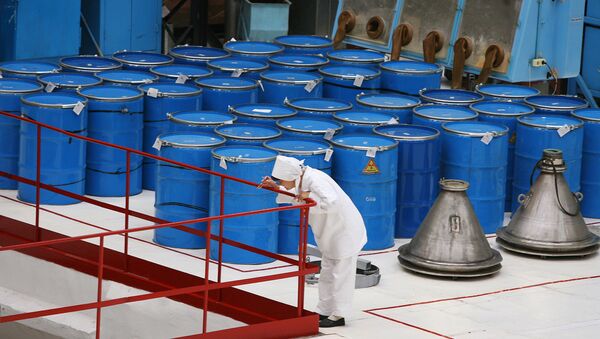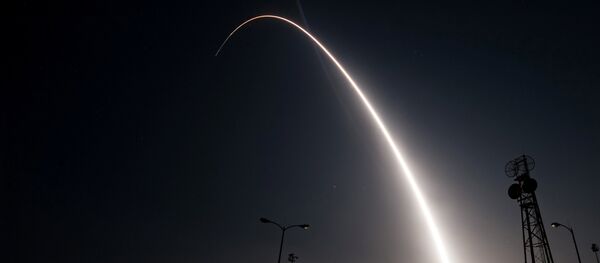WASHINGTON (Sputnik) — The United States is seeking to collaborate with Russia on repatriating Russian-origin fuel from other countries, Klotz said in a US Senate hearing.
“We continue to work with the Russians on what we would refer to as third-party efforts, for instance, repatriating Russian-origin fuel from other countries back to Russia,” Klotz stated on Wednesday. “We’ve just recently done that with Russian-origin highly-enriched uranium in Kazakhstan. So, we are looking for opportunities to do that.”
Klotz said he believed the effort was a natural place for the United States and Russia to resume cooperation, and noted it could improve if the two nations' relationship changes at a higher political level.
“The way in which we continue to cooperate is, we are not doing work inside Russia other than cleaning up a couple of contracts that have already been in place,” Klotz said. “We are prohibited by statute from entering into any new contracts with Russia assuming if they even want to at this stage — which they don’t.”
When asked by senators if Moscow is cooperating with US efforts to secure Russian material in foreign nations, Klotz said "yes."
Klotz noted that there is currently no active engagement between the two countries within Russia's borders.
"My personal assessment is that they [Russia] have in fact improved significantly in terms of security of both military and domestic radiation sources and nuclear material, but we continue to worry. There are still things that could be done,” he said.
In 2016, the Russian government announced its decision to suspend the US-Russia agreement on nuclear and energy-related research and development work, signed in Vienna on September 16, 2013.
Relations between Russia and the United States deteriorated in 2014, when Washington and its allies accused Moscow of fueling the Ukrainian crisis and imposed several rounds of sanctions against Russia. The restrictions targeted Russia's banking, energy and defense sectors.
Russia has repeatedly refuted Western allegations and warned that imposing sanctions is counterproductive. Russia announced in 2014 a food embargo on some products originating in states that had imposed restrictive measures on Moscow.



